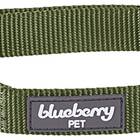How To Train Your Rescue Dog
Rescue pups are extra special 💕

If you’ve just adopted a dog from a rescue or shelter, you definitely made one of the best decisions ever!
Now that it’s all finally real, you might be wondering if training your rescue is any different than training any other new puppy or dog.
While there will be some totally expected adjustment periods for everyone involved, training is pretty similar to how you’d train any other pup!
The Dodo reached out to Shelby Semel, head trainer at Animal Haven rescue in New York City, and Lovelia Horn, a professional dog trainer and owner of Every Creature Counts in Southern Illinois, to find out how to do it.
Before training, let your rescue dog decompress
“I believe it is important to let a rescue dog decompress after bringing them home,” Semel told The Dodo.
The amount of time she needs to decompress may depend on how old she is, what her past was like and how long she was at the shelter or in a foster home.
“Decompression will consist of little to no formal training, not too much handling (i.e., petting or picking up) and giving them plenty of space,” Semel said.
This allows your rescue to just chill and take in her brand-new surroundings. According to Semel, not asking too much of her will help build trust — and once she’s had enough time to settle in and get accustomed to her new life, you can then begin training!
It’s important to get started on training ASAP once your dog’s more comfortable with her surroundings. “This will help [her] to bond with you and realize that you are not a threat,” Horn told The Dodo.
Use positive reinforcement
The best way to train a rescue dog (and any dog) is with positive reinforcement.
Positive reinforcement is when you reward your dog for doing what’s right rather than scolding her for doing something ‘wrong.’ “All dogs, including rescue dogs, respond better when you show them love and compassion instead of scolding them,” Horn said.
Get on her level
When you’re first getting to know your pup, Horn recommends getting down on the floor and crawling around. “This will help you bond with [her], and [she] will realize you are not a threat,” Horn said.
Treat her like any other new dog
Even if it seems like your pup seems like she knows basic training tasks, it’s best to assume she wasn’t trained by a five-star certified trainer. Start with some basic commands — if only to give her a fun refresher course and some time to bond with you!
Set clear boundaries
While you might want to give her some extra snuggles (and there will be plenty of time for that!), it’s in your best interest to make sure your dog understands boundaries from the very beginning. If you start off with bad habits — whether it’s letting her jump on the bed just this one time even if you won’t allow it in the future, or not correcting her peeing on the carpet “just this once” — it’ll be way harder to change her behavior down the line.
Make a schedule
Dogs love routine, so make sure you create one for her! Setting her expectations for playing, walks, feeding and training will help set her up for success.
Having realistic expectations for yourself (and your rescue!)
Just like when training any other dog, training can be a mix of emotions for both you and your rescue pup. That means there will inevitably be some bad training sessions, and sometimes it might feel like she’s regressing.
But stick it out! “Be patient with [her]. [She] has been through a lot and might take longer than a dog from a breeder or pet store to learn new commands,” Horn said.
Your dog relies on you to not give up on her, and the hard work you’ll both be putting into getting her warmed up to her new lifestyle will be totally worth it — and it’ll give you both a strong, loving bond for life.
How long does it take a rescue dog to adjust?
Any dog is going to need time to adjust to her new home. “However, if you are patient with [her] and continue training [her] in a positive manner, [she] will soon catch on,” Horn said.
Your rescue dog might need a little more time to adjust than most dogs do. However, with positive reinforcement, she’ll soon learn that you’re her new best friend.









